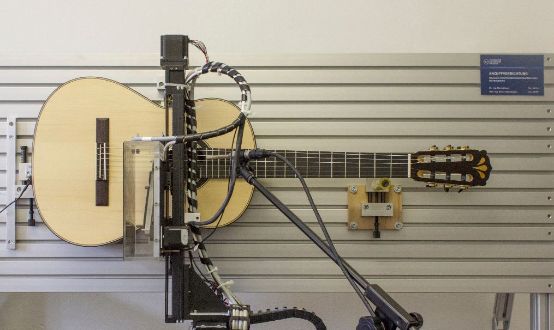Native replacement for tropical woods
Engineers at Dresden Technical University (TU) have developed a process for guitar manufacturer Hanika that makes spruce, maple or cherry usable for the construction of guitars. The domestic woods thus have at least the same acoustic properties as tropical wood.

Until now, classical guitars have been made from a combination of long-stored tropical wood species such as West Indian cedar for the neck, East Indian rosewood for the sides and back and ebony for the fingerboard. Since the beginning of 2017, however, stricter regulations have applied to the trade in endangered woods from the tropics, meaning that musical instrument makers have to rely on alternatives.
With the TU Dresden treatment process, native woods are thermally treated at a certain temperature and pressure for a certain period of time in order to accelerate the necessary ageing processes of the wood. As a result, the thermally modified native woods can be further processed into high-quality musical instruments after just one year.
Hanika now produces four new, completely tropical wood-free guitar models (basic, middle, upper and master class) from thermally treated local woods. The guitar manufacturer was awarded the title of "ZIM Craft Project of the Year" at the Innovation Day for SMEs organized by the Federal Ministry for Economic Affairs and Energy (BMWi) in Berlin.







